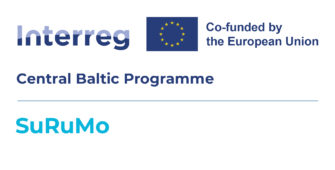
As part of the “Sustainable Mobility in Rural Areas” project, co-financed by the INTERREG Central Baltic Sea Region Programme 2021-2027 (SuRuMo), a population survey was conducted across all five pilot sites: Grobiņa and Ziemupe in Dienvidkurzeme Municipality, Alsunga in Kuldīga Municipality, Vāne in Tukums Municipality, and Ķūļciems and Pļavas in Talsu Municipality. The survey was conducted from December 2003 to January 2004. In collaboration with the project’s lead partner, AB Östgötatrafiken (Sweden), a comprehensive questionnaire was developed and administered to residents of the pilot areas. The goal was to collect a minimum of eight responses from each pilot site, a target that was successfully met.
Dr. Gints Birznienis, an expert from the Latvian University of Life Sciences and Technologies, was engaged under contract to compile and analyze the questionnaire data. However, some questionnaires were excluded from the analysis due to respondents either residing outside the pilot area or providing incomplete information.
Key findings from the survey include:
- The primary reasons for mobility among respondents varied by location, with the most common destinations being shops, medical services, schools (including kindergartens), and workplaces.
- While residents of most pilot areas predominantly traveled to their respective county centers, residents of Vānē showed a preference for Kandava. Additionally, Grobiņa students primarily attended the local school.
- Accessing medical services posed the greatest challenge for residents of Alsunga, Pļavas, Ķūļciems, and Vāne, while residents of Ziemupe faced difficulties accessing shops, pharmacies, and post offices.
- Grobiņa students expressed dissatisfaction with transportation options for commuting and participating in extracurricular activities, largely due to inadequate public transport schedules (notably in Alsunga, Pļavas, Ķūļciems, Vāne, and Ziemupe) and poor road conditions (especially in Ķūļciems and Ziemupe).
- Respondents generally expressed a desire for improved transportation options, preferably through enhanced public transport services. However, Grobiņa students indicated a preference for private vehicles.
The SuRuMo project aims to conduct research in pilot areas, gather data, and develop a unified digital platform to address sustainable mobility in rural regions.
Project activities are being implemented with the support of the Central Baltics Programme 2021-2027.
Project manager
Vizma Ģēģere
+371 29129385
vizma.gegere@kurzemesregions.lv

